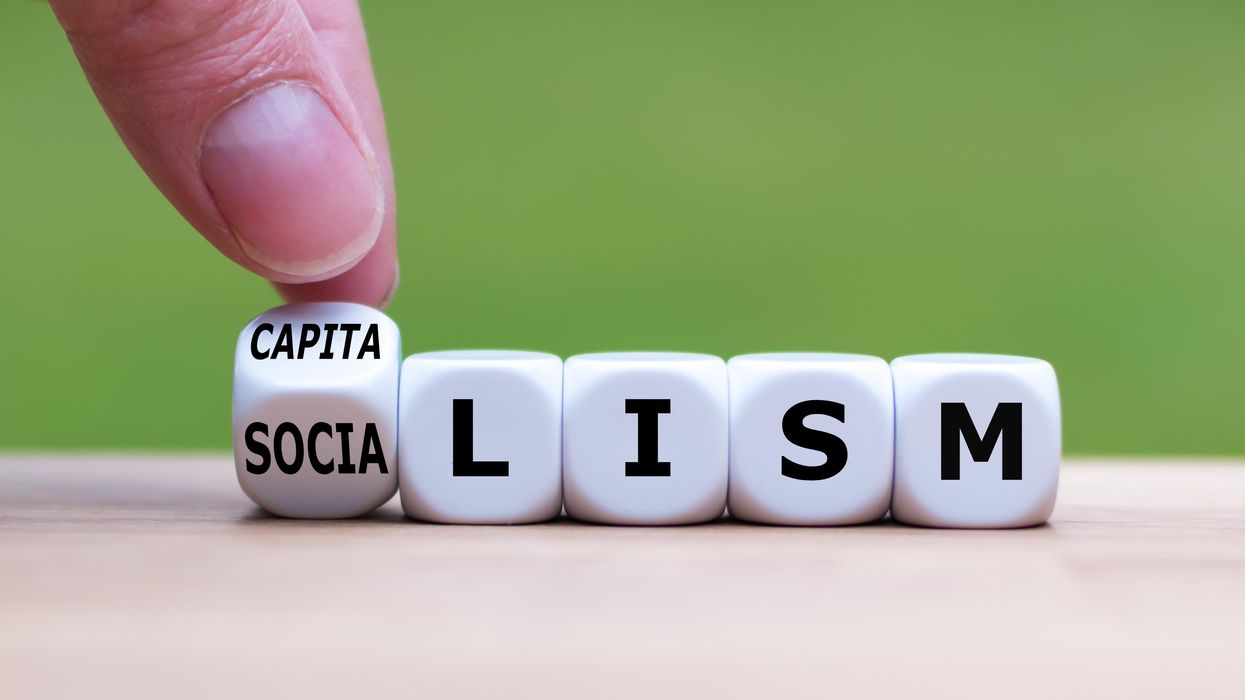Sturner, the author of “ Fairness Matters,” is the managing partner of Entourage Effect Capital.
This is the fourth entry in the “ Fairness Matters ” series, examining structural problems with the current political systems, critical policies issues that are going unaddressed and the state of the 2024 election.
Before we explore this divisive issue, I want to be clear that I believe capitalism has done more to lift people out of poverty than any other social and economic system in history. But don’t kid yourself that we live in a country that embraces “free market” capitalism. As we embark on this exploration, please know that I’m not suggesting we embrace policies that create disincentives to work, and work hard. Nor am I suggesting that we embrace policies that guarantee equal outcomes for all Americans. Rather, we need to evolve capitalism and break out of the political narratives that constrain that objective.
I write a lot about dogma and political narratives and how they are shaping our culture. One of the primary political narratives that impede progress is the notion that the GOP’s “conservative” policies are responsible for driving economic growth. We will revisit that in an upcoming article. Another, and the one that I want to explore today, is the narrative that the Democratic Party’s economic policies are tantamount to “socialism.” The crux of the issue is that the political right has weaponized the word “socialism” to vilify any policy that helps the working class. To highlight the absurdity, Fox News once used "socialism" to criticize Warren Buffett when he publicly supported raising taxes on the very wealthy.
So here’s my question: Philosophically, is there really a difference between what the GOP asserts as “socialism” and, let’s say, the Paycheck Protection Program and employee retention credit monies, or trillion-dollar bailouts, or massive tax cuts for the ultra wealthy that the GOP supports and advocates for? If you’re able to see the proverbial elephant in the room (pun intended), you’ll be forced to conclude that the only difference is ... the recipients of the money. When the top quartile (e.g., the investor or shareholder class) gets a government subsidy, then it’s the epitome of “free market capitalism,” but when the bottom 70 percent get it, then it is “ socialism.”
Let’s remember that most countries in the world — including the United States of America — have mixed economies and none of them fit neatly into one economic model. The word “socialism” has basically lost all practical meaning in political discourse.
Unfortunately, both sides of the aisle have demonized and reframed words like “socialism” and “capitalism” to their own political ends. Yet, the political parties in America rarely align their ideology with either system. The fact is that the traditional definitions of socialism and/or capitalism don’t actually fit the current political narratives in the United States. Let’s take a look at where these terms came from and where they are across a political spectrum.
So what do all these ideologies mean in simple terms?
Capitalism is centered on private ownership and the free market, allowing individuals and corporations to seek unlimited profits. However, unregulated capitalism can lead to issues like wealth concentration, child labor and environmental harm.
Communism aims for a classless society where the government controls production and distribution. This system seeks absolute equality but often results in authoritarian regimes due to its reliance on force for wealth redistribution.
Socialism combines elements of capitalism and communism, advocating for some free market mechanisms alongside significant government control of major industries to distribute wealth more equitably. However, it is prone to corruption and can lean towards authoritarianism.
Democratic socialism supports social ownership of key industries and rejects authoritarianism. It favors strong social safety nets and believes workers should receive a fair share of profits, opposing Soviet-style planned economies.
Social democracy blends free-market capitalism with government intervention to ensure social justice. It promotes gradual, peaceful change, prioritizing equality of welfare and opportunity over absolute equality. Social democracies maintain strong social safety nets within a capitalist framework.
So where can we look for a common sense approach to a more moderate form of social welfare that closes the wealth gap and leads to better outcomes for our citizenry? Social democracies are indeed capitalist systems with really strong social safety nets and have proven to be very successful at promoting fairness within their citizenry.
Have you ever wondered why Scandinavian countries are doing so well? According to many, they are successful because their politics and economy are based on a political ideology that does not reject capitalism, while at the same time offers a form of socialism. It sounds contradictory, but social democracy is an ideology that does just that. Even more interesting — and maybe it’s cultural — but these countries also rank highest on a well-respected “anti-corruption” index. You’ll note that the good old USA ranks 24th on this list.
We need to realize that if we don’t course correct, and quickly, we will find ourselves in the midst of a second American Civil War. Even before the assassination attempt on the life of former President Trump, Ray Dalio wrote in Time that the odds are increasing of a Civil War.
Isn’t it time to stop believing the rhetoric and dogma that is tearing us apart so that we can begin to marginalize the extremes in both parties, and their ideologies and fear-mongering?
There are concrete ways that we can modernize and adapt capitalism that would lead to better outcomes for society as a whole, end the class wars that divide us, and work to ensure that the American Dream survives and thrives into the next century.




















Marco Rubio is the only adult left in the room